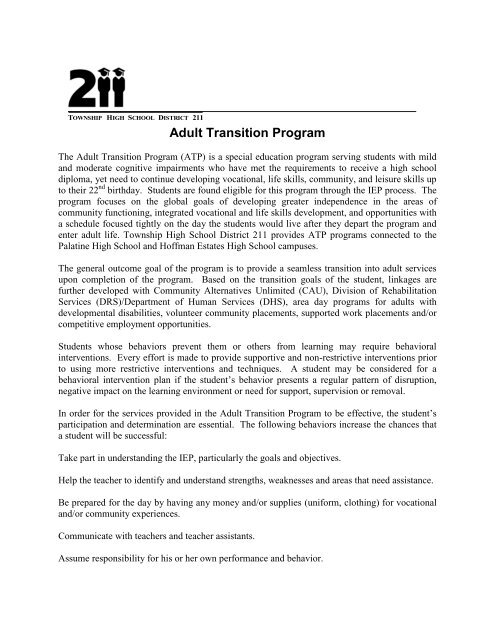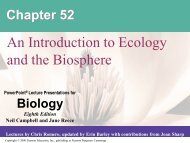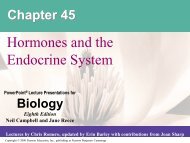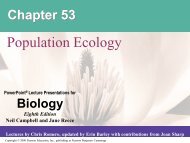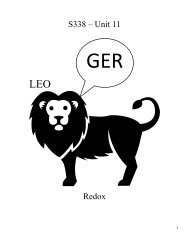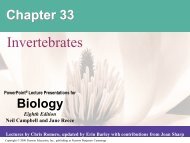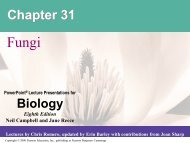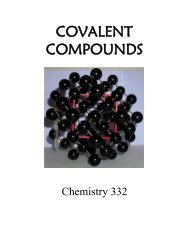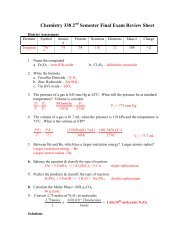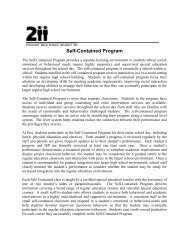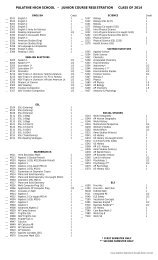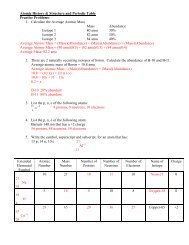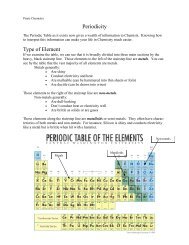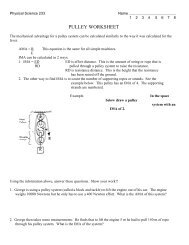Adult Transition Program - Palatine High School - Township High ...
Adult Transition Program - Palatine High School - Township High ...
Adult Transition Program - Palatine High School - Township High ...
Create successful ePaper yourself
Turn your PDF publications into a flip-book with our unique Google optimized e-Paper software.
TOWNSHIP HIGH SCHOOL DISTRICT 211<br />
<strong>Adult</strong> <strong>Transition</strong> <strong>Program</strong><br />
The <strong>Adult</strong> <strong>Transition</strong> <strong>Program</strong> (ATP) is a special education program serving students with mild<br />
and moderate cognitive impairments who have met the requirements to receive a high school<br />
diploma, yet need to continue developing vocational, life skills, community, and leisure skills up<br />
to their 22 nd birthday. Students are found eligible for this program through the IEP process. The<br />
program focuses on the global goals of developing greater independence in the areas of<br />
community functioning, integrated vocational and life skills development, and opportunities with<br />
a schedule focused tightly on the day the students would live after they depart the program and<br />
enter adult life. <strong>Township</strong> <strong>High</strong> <strong>School</strong> District 211 provides ATP programs connected to the<br />
<strong>Palatine</strong> <strong>High</strong> <strong>School</strong> and Hoffman Estates <strong>High</strong> <strong>School</strong> campuses.<br />
The general outcome goal of the program is to provide a seamless transition into adult services<br />
upon completion of the program. Based on the transition goals of the student, linkages are<br />
further developed with Community Alternatives Unlimited (CAU), Division of Rehabilitation<br />
Services (DRS)/Department of Human Services (DHS), area day programs for adults with<br />
developmental disabilities, volunteer community placements, supported work placements and/or<br />
competitive employment opportunities.<br />
Students whose behaviors prevent them or others from learning may require behavioral<br />
interventions. Every effort is made to provide supportive and non-restrictive interventions prior<br />
to using more restrictive interventions and techniques. A student may be considered for a<br />
behavioral intervention plan if the student’s behavior presents a regular pattern of disruption,<br />
negative impact on the learning environment or need for support, supervision or removal.<br />
In order for the services provided in the <strong>Adult</strong> <strong>Transition</strong> <strong>Program</strong> to be effective, the student’s<br />
participation and determination are essential. The following behaviors increase the chances that<br />
a student will be successful:<br />
Take part in understanding the IEP, particularly the goals and objectives.<br />
Help the teacher to identify and understand strengths, weaknesses and areas that need assistance.<br />
Be prepared for the day by having any money and/or supplies (uniform, clothing) for vocational<br />
and/or community experiences.<br />
Communicate with teachers and teacher assistants.<br />
Assume responsibility for his or her own performance and behavior.
The <strong>Adult</strong> <strong>Transition</strong> <strong>Program</strong> can be successful if the student exhibits the behaviors described<br />
above.


